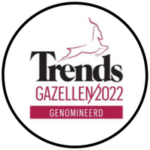Summary In the contemporary business environment, digital procurement is becoming increasingly popular and sought after by businesses around the world. The relationships …
How is procurement in healthcare transforming patient care?
Why procurement in healthcare matters for patient care
Strategic procurement plays a crucial role in developing a healthcare system that genuinely prioritises the needs of patients. By implementing a proactive and long-term procurement strategy, healthcare organisations can secure access to dependable, high-quality medical supplies, equipment, and cutting-edge technologies, all of which significantly influence the quality of patient care and operational efficiency.
A fundamental aspect of strategic procurement is the establishment of relationships with trustworthy suppliers. In the healthcare sector, where patient safety is of utmost importance, reliable suppliers are vital for consistently obtaining high-quality products that adhere to rigorous health and safety regulations. This strategy not only mitigates risks but also fosters a foundation of trust, enabling healthcare providers to deliver services confidently without interruptions in supply. Such collaborations also offer the agility to respond to unexpected increases in demand, as witnessed during health emergencies, thereby ensuring uninterrupted patient care.
Access to advanced medical equipment and technologies, especially AI-driven solutions, significantly enhances healthcare delivery. The global market for AI in healthcare is anticipated to grow at a CAGR of 38.5% until 2030, highlighting the increasing integration of AI tools in diagnostics, patient monitoring, and treatment planning. By prioritising strategic procurement, healthcare providers can effectively incorporate these innovations into their operations, facilitating quicker and more precise diagnoses, tailored treatment plans, and improved patient outcomes.
Strategic procurement promotes cost-effectiveness while maintaining quality. Given that supply costs in hospitals can account for 30-40% of total expenses, focused procurement practices ensure that financial resources are utilised efficiently, emphasising critical areas and resources that enhance patient care.
How does procurement in healthcare directly impact patient outcomes?
When thinking about healthcare, most patients don’t consider procurement’s role. Yet, behind every diagnosis, treatment, and smooth experience lies strategic procurement. By sourcing essential equipment, medications, and efficient systems, procurement ensures that healthcare providers have the tools needed to deliver high-quality care that directly impacts patient outcomes.
Access to advanced medical equipment
Procurement teams facilitate healthcare providers’ access to the most recent medical technologies, significantly enhancing diagnosis and treatment capabilities. By acquiring state-of-the-art imaging devices, AI-driven diagnostic instruments, and minimally invasive surgical tools, procurement enables healthcare facilities to deliver quicker, more precise diagnoses and customised treatment plans. For patients, this translates to earlier identification of health issues, enhanced treatment strategies, and often improved recovery outcomes.
Ensuring consistent medication supply
Reliable access to medications is essential in the healthcare sector, and procurement is pivotal in sustaining steady inventory levels. Strategic procurement collaborates with reputable suppliers to guarantee that both essential and specialised medications are readily available, thereby preventing shortages that could hinder or interrupt patient care. This is especially critical in the management of chronic conditions, emergencies, and intricate medical situations, where even a minor shortage can adversely affect patient well-being.
Enhancing operational efficiency
Procurement not only secures necessary supplies but also contributes to the optimisation of hospital operations by sourcing effective systems and tools. For instance, digital health records, patient management software, and automated laboratory equipment enhance workflow, minimise administrative burdens, and reduce patient wait times for care. When procurement fosters an efficient hospital environment, patients benefit from shorter wait periods, smoother transitions throughout the care continuum, and an overall more positive experience.
Effective procurement transforms healthcare facilities into better-equipped, more responsive environments where patients receive timely, advanced, and uninterrupted care, directly enhancing their outcomes and well-being.
Leading through example: Leveraging digital tools for better patient care
In healthcare, reliable access to critical supplies is fundamental to patient outcomes. A leader in innovative healthcare, transformed its procurement approach with a cutting-edge digital platform, leveraging predictive analytics and technology to optimise supply management. This case study reveals how a healthcare company used digital procurement to enhance patient care, reduce costs, and ensure uninterrupted treatment.
The healthcare company recognised that efficient supply management is essential for high-quality patient care. Facing challenges like stockouts, unpredictable demand, and high emergency procurement costs, the hospital implemented a state-of-the-art digital procurement platform that integrates data analytics and AI. This forward-thinking strategy enables a responsive, data-driven supply chain, crucial for minimising disruptions and improving patient experiences.
Solution: Implementing a digital procurement platform with predictive analytics
The hospital’s digital procurement platform revolutionised its approach to inventory management by combining predictive analytics and real-time data.
Demand prediction using AI |
Real-time inventory optimisation |
Automated alerts and order management |
|---|---|---|
|
By analysing usage patterns, algorithms create predictive models that forecast future supply needs. This demand prediction helps the hospital stay ahead of fluctuations, ensuring critical supplies remain available.
|
The platform provides instant visibility into inventory levels across departments. This real-time monitoring enables efficient stock management, enabling the team to respond quickly to surges in patient demand.
|
The system generates automated alerts for low inventory, triggers reorder requests and suggests ideal stock levels. This automation minimises manual oversight, freeing up time for other patient-centred initiatives.
|
Demand prediction using AI
By analysing usage patterns, algorithms create predictive models that forecast future supply needs. This demand prediction helps the hospital stay ahead of fluctuations, ensuring critical supplies remain available.
Real-time inventory optimisation
The platform provides instant visibility into inventory levels across departments. This real-time monitoring enables efficient stock management, enabling the team to respond quickly to surges in patient demand.
Automated alerts and order management
The system generates automated alerts for low inventory, triggers reorder requests and suggests ideal stock levels. This automation minimises manual oversight, freeing up time for other patient-centred initiatives.
Impact on patient care: Better supply chain, enhanced patient experiences
Mitigating stockouts |
Lowering emergency expenses |
Ensuring continuous patient care |
|---|---|---|
|
Through precise demand forecasting, the hospital effectively sustains a steady inventory of critical supplies such as IV fluids and wound care items. This strategy averts shortages that could hinder patient treatment, thereby ensuring a continuous provision of high-quality care.
|
By accurately predicting demand, the hospital has significantly reduced the necessity for expensive, last-minute acquisitions. The financial savings generated are redirected towards patient-focused initiatives, including advancements in technology and improved service offerings.
|
By implementing strategic inventory management, delays and cancellations of procedures caused by low supplies have been significantly reduced. Patients benefit from fewer rescheduled appointments and more dependable care, improving trust and satisfaction with healthcare services.
|
Mitigating stockouts
Through precise demand forecasting, the hospital effectively sustains a steady inventory of critical supplies such as IV fluids and wound care items. This strategy averts shortages that could hinder patient treatment, thereby ensuring a continuous provision of high-quality care.
Lowering emergency expenses
By accurately predicting demand, the hospital has significantly reduced the necessity for expensive, last-minute acquisitions. The financial savings generated are redirected towards patient-focused initiatives, including advancements in technology and improved service offerings.
Ensuring continuous patient care
By implementing strategic inventory management, delays and cancellations of procedures caused by low supplies have been significantly reduced. Patients benefit from fewer rescheduled appointments and more dependable care, improving trust and satisfaction with healthcare services.
The outcomes: Establishing a new benchmark in procurement in healthcare
Through the utilisation of a digital procurement platform enhanced by predictive analytics, the hospital has established a new benchmark for agile, data-informed procurement within the healthcare sector. This innovative strategy has not only streamlined their supply chain but has also enhanced patient care by guaranteeing prompt access to essential resources. With the aid of AI-driven insights and predictive functionalities, the hospital is now more adept at forecasting requirements, mitigating disruptions, and consistently providing outstanding healthcare services to patients.
Success demonstrates how healthcare organisations can leverage digital procurement to drive efficiency and enhance patient care. The integration of AI and predictive analytics offers a powerful tool to optimise supply chain management, reduce costs, and improve the quality of care. If you’re looking to enhance patient outcomes and streamline your healthcare procurement processes, digital procurement solutions with predictive analytics are the way forward.
Explore the benefits of digital procurement in healthcare with Kronos Group
Discover how procurement consulting, enhanced with predictive analytics, can transform your healthcare supply chain. With Kronos Group, your organisation can leverage the latest digital tools to optimise inventory, predict supply needs, and reduce costly stockouts.
Take the next step toward building a responsive, resilient healthcare procurement system. Contact us today to explore how our procurement consulting services can deliver streamlined operations, enhanced patient care, and substantial cost savings for your organisation.
Unlock the power of predictive analytics in healthcare procurement
Transform your procurement strategy with predictive analytics—optimise resources, anticipate demand, and reduce costs. Contact us today to learn how digital procurement can elevate your healthcare services.
Fighting the effects of inflation with sourcing and procurement consultants
Stay up-to-date on the latest insights on procurement, finance, and project management.
Summary Strategic procurement has become a necessity in today’s business world and organisations try to remain competitive. Having the right procurement strategies …
Summary The world of consulting has been undergoing a massive transformation and management consulting jobs are experiencing the impacts of these changes. …
FAQ
Clinical procurement is the process of sourcing, purchasing, and managing medical supplies, equipment, and services specifically for clinical settings. It ensures healthcare providers have the essential, high-quality materials needed to deliver effective patient care, often with a focus on meeting regulatory standards and controlling costs.
By automating manual tasks, reducing overstocking, enabling better vendor negotiations, and using predictive analytics, digital procurement helps organisations cut costs associated with urgent orders, supply wastage, and manual errors.
Key performance indicators include order accuracy, supplier lead times, cost savings, inventory turnover rate, and stockout frequency. Monitoring these KPIs helps healthcare organisations measure procurement effectiveness and optimise supply chain performance.














